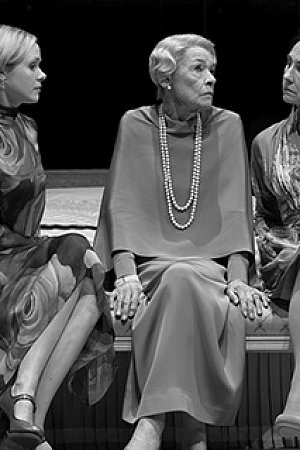Chimerica (Sydney Theatre Company) ★★★★1/2
Lucy Kirkwood, the present darling of the British critics, is a playwright who is not afraid of tackling momentous subjects. Her most recent play, The Children (2016), is a post-nuclear apocalyptic chamber piece which explores the responsibility of the baby boomer generation to those who come after. Her new play, Mosquitoes, to be presented by the National Theatre in July 2017, apparently deals with two sisters and the Large Hadron Collider – Chekhov meets Stephen Hawking. Chimerica, a neologism originally coined by Niall Ferguson and Moritz Schularick, is about the convoluted relationship between China and the United States. The play opened in London in 2013 to uniformly ecstatic reviews and won practically every award going. The response when it was performed in the United States was considerably less enthusiastic, and I imagine it will be a long time before it gets a production in China.
Continue reading for only $10 per month. Subscribe and gain full access to Australian Book Review. Already a subscriber? Sign in. If you need assistance, feel free to contact us.














Leave a comment
If you are an ABR subscriber, you will need to sign in to post a comment.
If you have forgotten your sign in details, or if you receive an error message when trying to submit your comment, please email your comment (and the name of the article to which it relates) to ABR Comments. We will review your comment and, subject to approval, we will post it under your name.
Please note that all comments must be approved by ABR and comply with our Terms & Conditions.